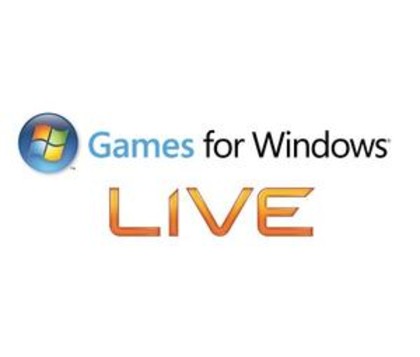Does Steam have an unfair monopoly over PC gaming?
And what happened to Games For Windows Live?
TechRadar spoke to a number of developers to gauge their thoughts on Steam and the PC download market. Jiri Jakubec, Sales Manager at IDEA Games told us, in no uncertain terms:
"There is no doubt that Valve's Steam is the biggest and most successful digital download distribution platform in the PC market. It came first on the market with a huge audience base, large product range and user-friendly services (profiles, marketing activities, promotions, price saving actions, etc)."
However, the developer is quick to add that there are lots of competitors already out there "some are serious, some are minor… which does indicate that there isn't a Steam monopoly… if other companies in the same business can grow in strength, then that is a clear signal that there is nothing like a monopoly in any traditional sense. "
Few developers or publishers will ever dismiss or criticise Steam (publicly, at least) purely because Valve is a vitally important business partner for them right now.
"However it's also true that Steam does not automatically take all games, so some independent developers may still be left in the dark," notes IDEA's Jiri Jakubec.

BLACKLIGHT TANGO DOWN: Ignition's new game is its download hopeful
Ajay Chadha, Head of Worldwide Publishing at Ignition Entertainment is currently working on 'Blacklight: Tango Down', described as one of the most advanced games ever released solely through downloadable channels. When we asked him if he thought Steam had a monopoly in PC gaming, he told TechRadar:
Sign up for breaking news, reviews, opinion, top tech deals, and more.
"The short answer is, of course, yes, but if you look at the fact that Steam was one of the first services to market and they brought all that great Valve content with it, then you can see why they have become the biggest portal for digitally distributed PC games.
"There is room in the market for other retailers as the Digital Download space expands, the services with the best content will be the ones that thrive."
And what of Microsoft?
Microsoft's own Games For Windows Live initiative is certainly struggling, particularly when compared to the runaway success of Steam in the PC gaming market. But is Valve somehow to 'blame' for this? Should Games For Windows Live be allowed to just die on the vine (as Edge recently asked)?
Or instead, does Microsoft need to step up its game in the PC market and make something new and better that gamers are willing to pay for? As avid PC gamers, we all hope that it is the latter...
In May 2007, shortly after the launch of Vista, Microsoft launched Games for Windows Live, which Edge described as, "part of a larger initiative that includes branding of all PC game boxes and a rating system to simply identify which games your computer is capable of running... an application and service that offers online matchmaking, auto-downloading of patches, a downloadable content marketplace and, in some cases, cross-platform play with Xbox 360 users. "
You can see the thinking behind it – "let's make Xbox Live, but for all those millions of casual PC gamers instead." Yet it has, for all intents and purposes, pretty much failed to make its mark.

MICROSOFT FAIL: Gamers are not happy with GFWL so far
So why has it failed?
Edge blames Microsoft's (ostensibly laudable) attempts to curb PC gaming piracy, noting that, "the real problem is a player's online profile… online profiles work in much the same way as Xbox Live: you sign up, create a Gamertag and, by being signed in, collect Achievements as you play games."
However, there is a key problem, which is that, "if you start a game while logged in to your account, your saved games are then irrevocably tied to that online profile. If your internet connection is ever unavailable, or if the Games for Windows Live servers aren't working, then those saves are inaccessible. You cannot play your single-player game."
Games For Windows Fail?
"The broad goal we had was combining the world of consoles and PCs," says Peter Moore, previously VP of Microsoft's entertainment business division as Games for Windows Live. "Games for Windows was a way of reinvigorating the PC business by getting the power of Microsoft behind it. The Games for Windows logos that you still see today on games were about bringing a clear, consistent experience that says: 'This game works.'"
But it doesn't work.
It has, to date, failed, because it has not given gamers a service that makes their PC gaming – online or offline – in any way better. Look at one of the comments on the Edge forum, which sums it up nicely: "Steam dominates because it does so many things well, and the other download services do so many things badly. G4WL is bad, sure, but it's no worse than, say EA's Download Manager."
Steve Hogarty, Editor of PC Zone is equally as dismissive about Microsoft's GFWL offering, telling TechRadar: "The reason Games for Windows Live is failing isn't anything to do with Steam. Simply put, it's a clunky, restrictive and quite frankly rubbish service that nobody would willing opt in to."
Graham Smith, Deputy Editor on PC Gamer informs us that: "Games For Windows Live was launched with the purpose of making PC gaming more accessible. It aimed to do this in three ways: 1) with a cohesive ranking system for system specifications, 2) by providing easy online networking, achievements and DLC, and 3) by labelling all PC games on shop shelves with a single respected brand.
"It has failed on all counts. The ranking system has been abandoned, leaving the question of whether a game will work on your home PC as baffling as ever. The multiplayer service is fundamentally broken, making DLC hard to buy and saved games hard to access. And that single Games for Windows brand, although it still appears on a lot of PC game boxes, is a sign only that the game will cause you extra hassle."
Some in the industry are not so instantly dismissive of GFWL, though, with MCV Editor Michael French telling TechRadar: "It's debatable as to whether GFWL has been a success or not, depending on where you sit in the industry – it has given clearer signage and branding to PC games, for instance, which publishers appreciate.
"But it's widely agreed that the certification process, while a 'necessary evil' for closed, controlled formats like consoles, can seem too stringent for gamers who want fast improvements delivered to their games when necessary and developers who want to provide those updates. To me that suggests its limitations haven't come from Steam's success as such, but rather its own shortcomings.
"I wouldn't write Microsoft off, though," adds French, "they made sounds about making GFWL more open and friendly overall at GDC 09, some of which have already been rolled out, and they will probably continue to support it for some time. I think trying to predict its demise could suggest an unrealistic 'David vs Goliath' scenario – just because a big company tries something that doesn't quite work doesn't make it an instant write-off."
Microsoft claims it's happy with GFWL. A spokesperson for Microsoft told TechRadar: "We're very proud of the progress we've made with Games for Windows Live in a relatively short amount of time. Steam is a great service that has been on the market for five years. Both services offer different features, and we're going to continue building on the Live service and community to deliver unique features and a seamless PC gaming experience."
